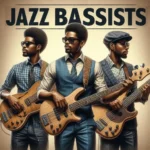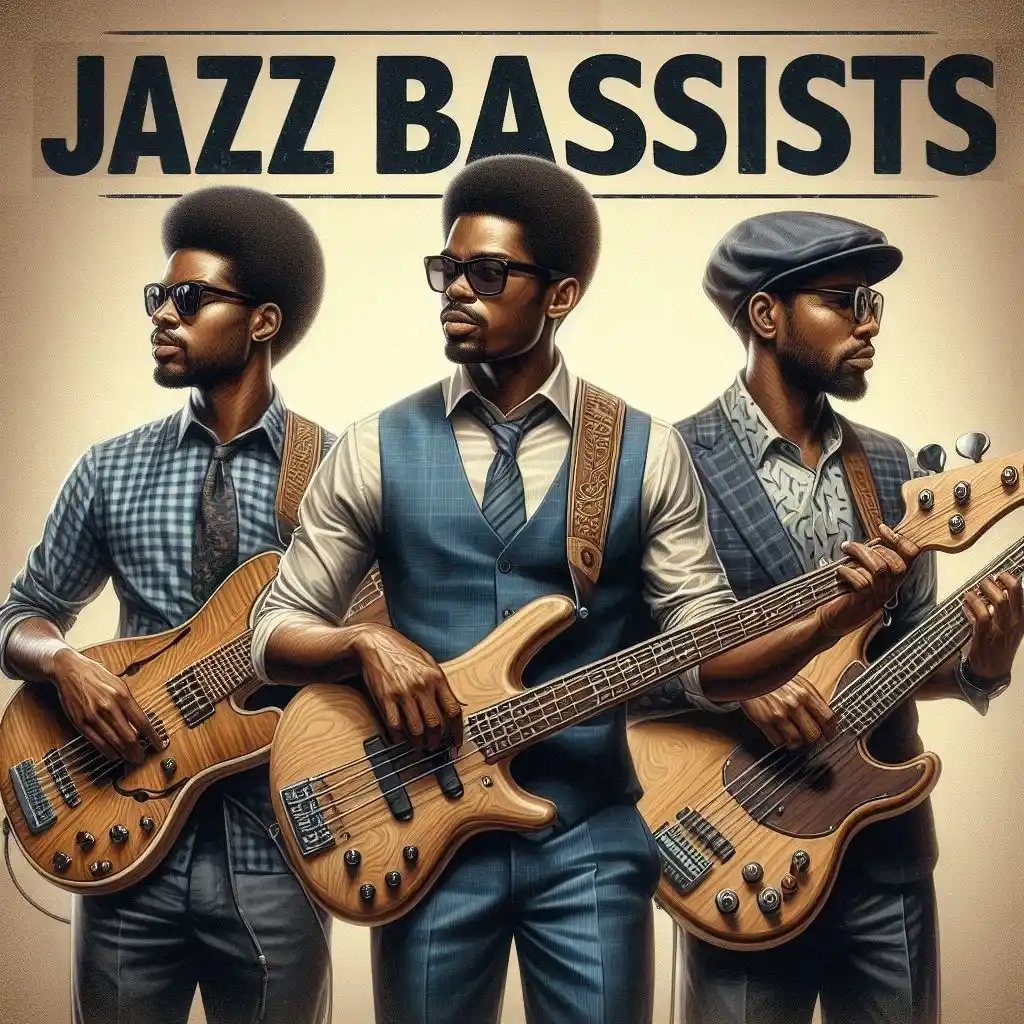
10 Best Jazz Bassists
Ever been at a jazz club, tapping your foot to a rhythm, and felt that deep, resonant pulse that seems to reach straight into your soul? That’s the magic of the bass.
From the upright double basses of the swing era to the sleek electric bass guitars of fusion jazz, bassists have evolved, innovated, and turned this instrument into an art form of its own.
So, get ready, as we walk you through some of the most iconic jazz bassists who ever graced the stage:
1. Charles Mingus
When talking about jazz bassists, it’s almost criminal not to start with Charles Mingus. This virtuoso wasn’t just a bass player; he was a bandleader, a composer, and a force to be reckoned with. Mingus’s style was robust, intricate, and intense. His compositions like “Goodbye Pork Pie Hat” and “Moanin'” are testament to his genius. Mingus took the double bass, an instrument often relegated to the background, and brought it front and center, showcasing its versatility and depth.
2. Ray Brown
Ray Brown’s fingers on the bass were like a poet’s pen on paper, fluid, expressive, and soulful. Having played with the likes of Dizzy Gillespie, Ella Fitzgerald (who was also his one-time spouse), and Oscar Peterson, Brown’s rhythm and groove became synonymous with the golden era of jazz. His ability to swing, whether in a ballad or an upbeat number, made him one of the most sought-after bassists of his time.
3. Ron Carter
If we’re talking about bassists who’ve left an indelible mark on the world of jazz, Ron Carter’s name shines bright. With over 2,000 albums to his credit, Carter is one of the most recorded bassists in jazz history. He’s played with legends like Miles Davis, Herbie Hancock, and Antonio Carlos Jobim. Whether it’s bossa nova, bop, or fusion, Carter’s impeccable timing and melodic sensibilities have made him a legend.
4. Jaco Pastorius
Enter the world of electric bass with Jaco Pastorius, the man who redefined what the instrument could do. With his fretless bass guitar, Pastorius introduced the world to a sound that was smooth, lyrical, and incredibly groovy. From his solo in “Portrait of Tracy” to his funky lines in Weather Report’s “Birdland”, Pastorius showcased the electric bass’s potential in jazz.
5. Scott LaFaro
In the world of upright bass, Scott LaFaro was a shooting star, making a significant impact in a tragically short span. His work with the Bill Evans Trio, especially the album “Sunday at the Village Vanguard”, showcased his revolutionary approach to the bass. Instead of just being a rhythm keeper, LaFaro’s bass danced, conversed, and told stories, making him one of the most influential bassists in modern jazz.
6. Paul Chambers
When you think of the cool, sophisticated sounds of the ’50s and ’60s jazz, Paul Chambers’ bass lines might come to mind. A regular collaborator with legends like John Coltrane and Miles Davis, Chambers was known for his impeccable technique and his melodious arco (bowed) solos. His work on tracks like “So What” from the iconic “Kind of Blue” album showcases his undeniable prowess.
Now, after basking in the groovy world of these jazz giants, let’s continue our journey and explore more bass virtuosos who’ve given jazz its heart and soul.
7. Esperanza Spalding
Breaking the mold and bringing in a fresh sound to the 21st-century jazz scene, Esperanza Spalding is a force to be reckoned with. Not only is she a phenomenal bassist, but her vocals are equally enchanting. Tracks like “I Know You Know” and “Black Gold” showcase her unique blend of jazz, funk, and soul.
8. Christian McBride
Christian McBride’s bass resonates with the sounds of the greats, yet with a flavor that’s uniquely his. Whether he’s swinging hard in a bebop number or laying down smooth grooves in a modern jazz piece, McBride’s versatility and technical brilliance are evident. His collaborations range from Chick Corea to Sting, further showcasing his wide-ranging musical palette.
9. Stanley Clarke
Bridging the worlds of acoustic and electric bass, Stanley Clarke’s name is synonymous with fusion jazz. With his work in the band Return to Forever and his collaborations with the likes of George Duke, Clarke introduced a level of virtuosity and showmanship to bass playing that was hitherto unseen.
10. Richard Davis
A maestro of the double bass, Richard Davis’s career spans multiple genres, from classical to jazz. But it’s in the world of jazz that his creativity truly shines. His work with legends like Eric Dolphy and Sarah Vaughan showcased his ability to adapt, innovate, and mesmerize.
